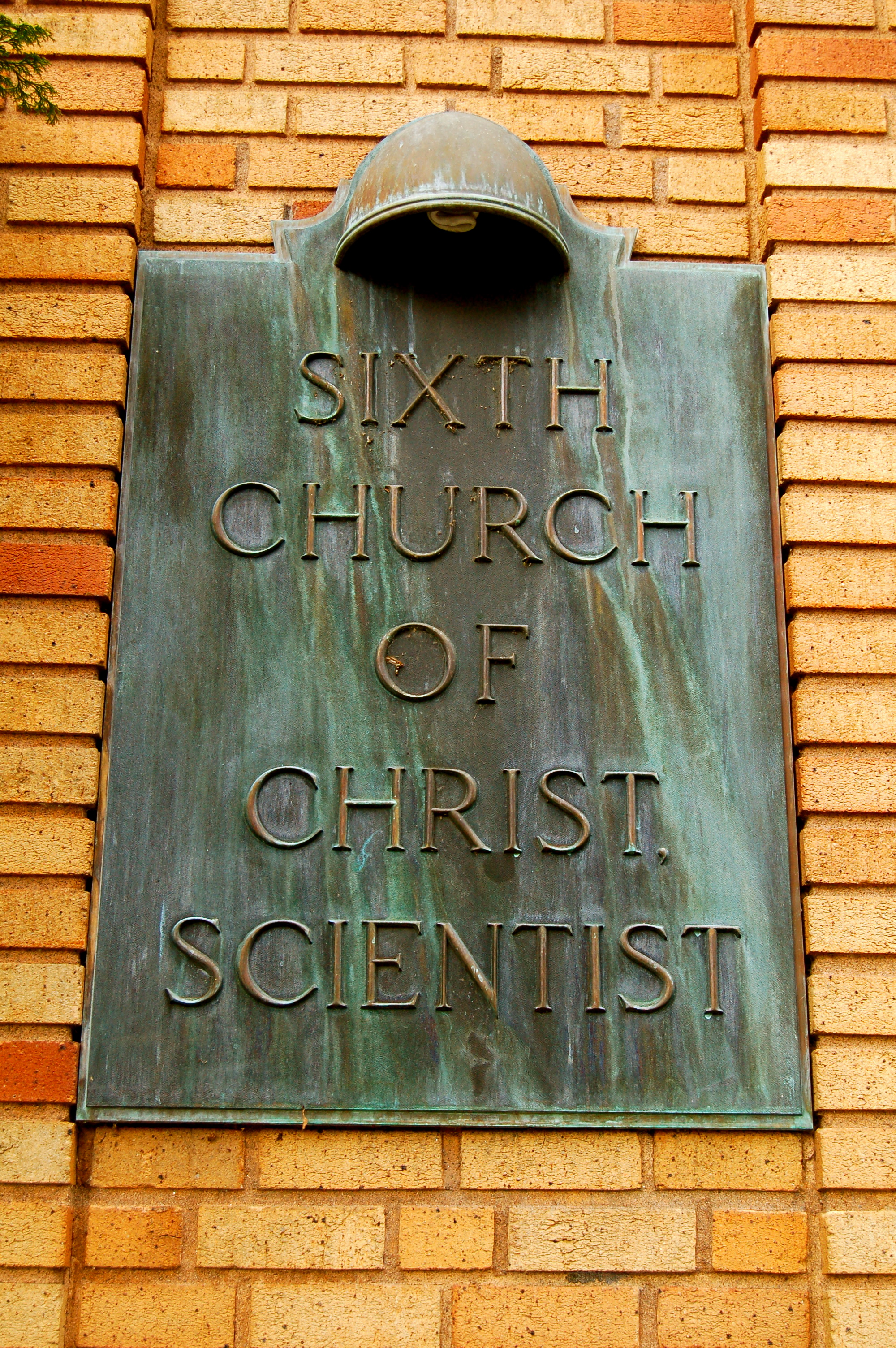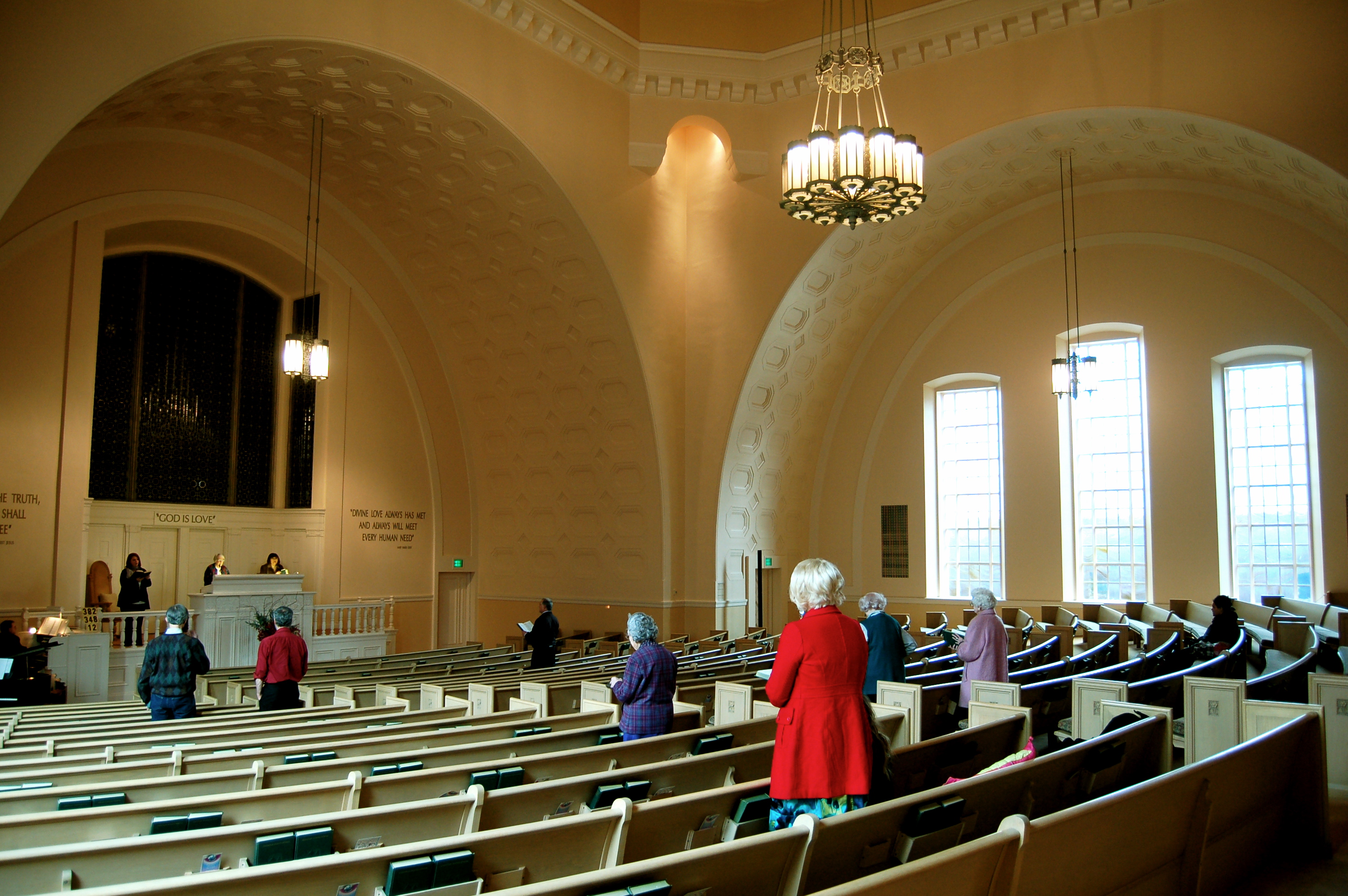
Before braving my first Christian Science service, I called my dad for moral support. I wanted to pick his brain a bit and get the perspective of a long-lapsed member of the church. He had a lot to share and it was almost all obnoxiously positive. Apparently you can take the boy out of the cult, but you can’t take the cult out of the boy. Because if Christian Science is indeed a cult (and I would argue that it’s anything but), it’s a cult of positivity.
This theory started with my grandmother, who had more positivity in her left eyebrow than most people have in their entire bodies. She was physically incapable of thinking an unkind thought. I remember when my older brother got caught smoking in junior high school and his punishment was that instead of joining us on our family trip to Hawaii, he had to stay with Grandma that week. When she caught him climbing the roofs of her condominium complex (and doing who knows what up there), she just laughed it off as Dan being Dan. “His energy is just delightful!” Our other grandmother would have handcuffed him to a chair just so she’d know where to find him.
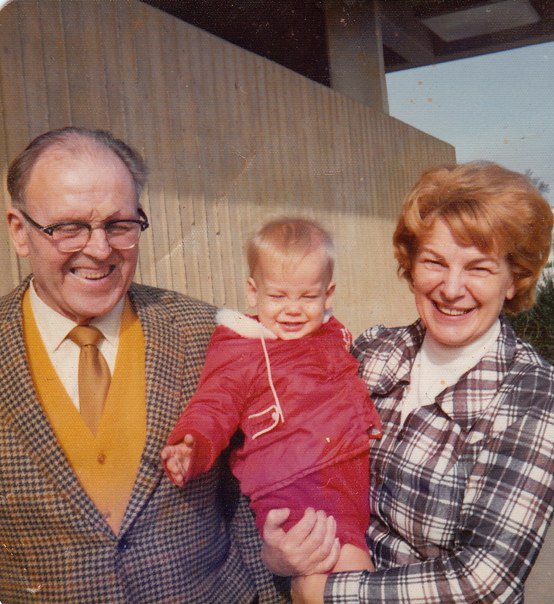
She radiated so much pure, unadulterated goodness that it was hard not to think of her as a real-life angel. I always thought it was just her until I worked for a Christian Scientist and met a handful of her clients who were also in the church.
They were ALL like that.
Well, I take that back. The WOMEN were like that. The men were always Crotchety McGrumpensteins, which I found adorable. So my dad’s first point was the obvious one: he grew up in an extremely positive environment, surrounded by genuinely happy, enthusiastic people and as a result, he became one himself.
Dad’s second point was that by growing up in an outlying religious sect, he had no choice but to be different from the other kids. So as an adult, he’s always summoned the bravery to embrace his own particular brand of different. Dad has never been a conformist and that way of thinking has served him well in his professional life, as illustrated by the half dozen hard drive patents hanging on his office wall.
Of course, the church isn’t all good. Dad tried to politely explain to me what he calls the “faith healing paradox,” wherein Christian Scientists think that because they apply their beliefs and practices and good things happen that the beliefs and practices must be causal – they must be TRUE – which is like saying that wearing a hat causes baldness. It simply defies logic, which is pretty sad for a religion that calls itself science.
The truth is that by rejecting science, Christian Scientists DIE.
UNNECESSARILY.
I’ve lost colleagues and family members to things like uterine cancer, skin cancer and breast cancer, diseases that could have been caught and potentially cured by routine preventative medical examinations that women like me have on an annual basis. I find that hard to swallow.
I probably should’ve started this post with a caveat: I spent almost the entire service bawling like a baby. Or, more accurately, like a grown, 34-year old woman who desperately misses her grandmother in spite of the fact that she’s been dead for 16 years.
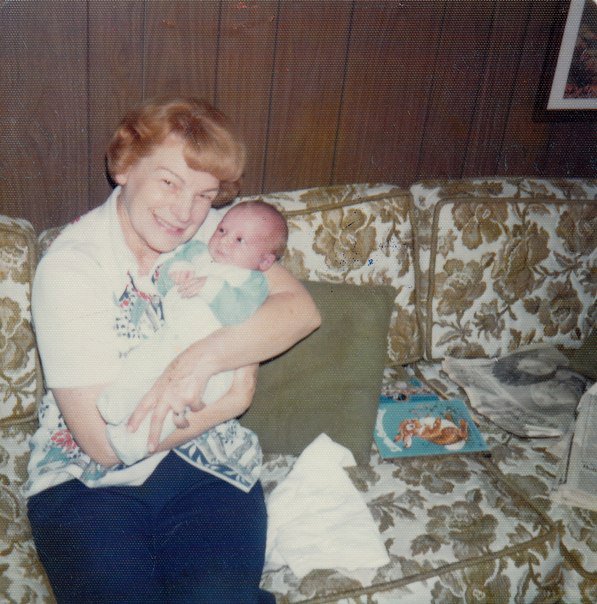
We’re talking the UGLY CRY, people. Poor Joel kept reaching his arm around the pew to rub my shoulder. My reaction took us both by surprise.
It also made it pretty difficult for me to pay attention. I just kept looking up at the ceiling, which was perhaps the most magnificent one we’ve seen yet, and wishing I’d gotten to know Grandma Ardie better. I can remember her powdery hair and the way she smelled and how enthusiastically she’d plunk at her upright piano and sing along with her sweet, stringy voice and how she was the only human being I ever let call me “Mandy.” I even remember her Bible; the tissue paper pages had gold-leafed edges and chapters that were finger-nail-indented like a dictionary. I honestly can’t remember what the cover looked like because the damn thing was always open.
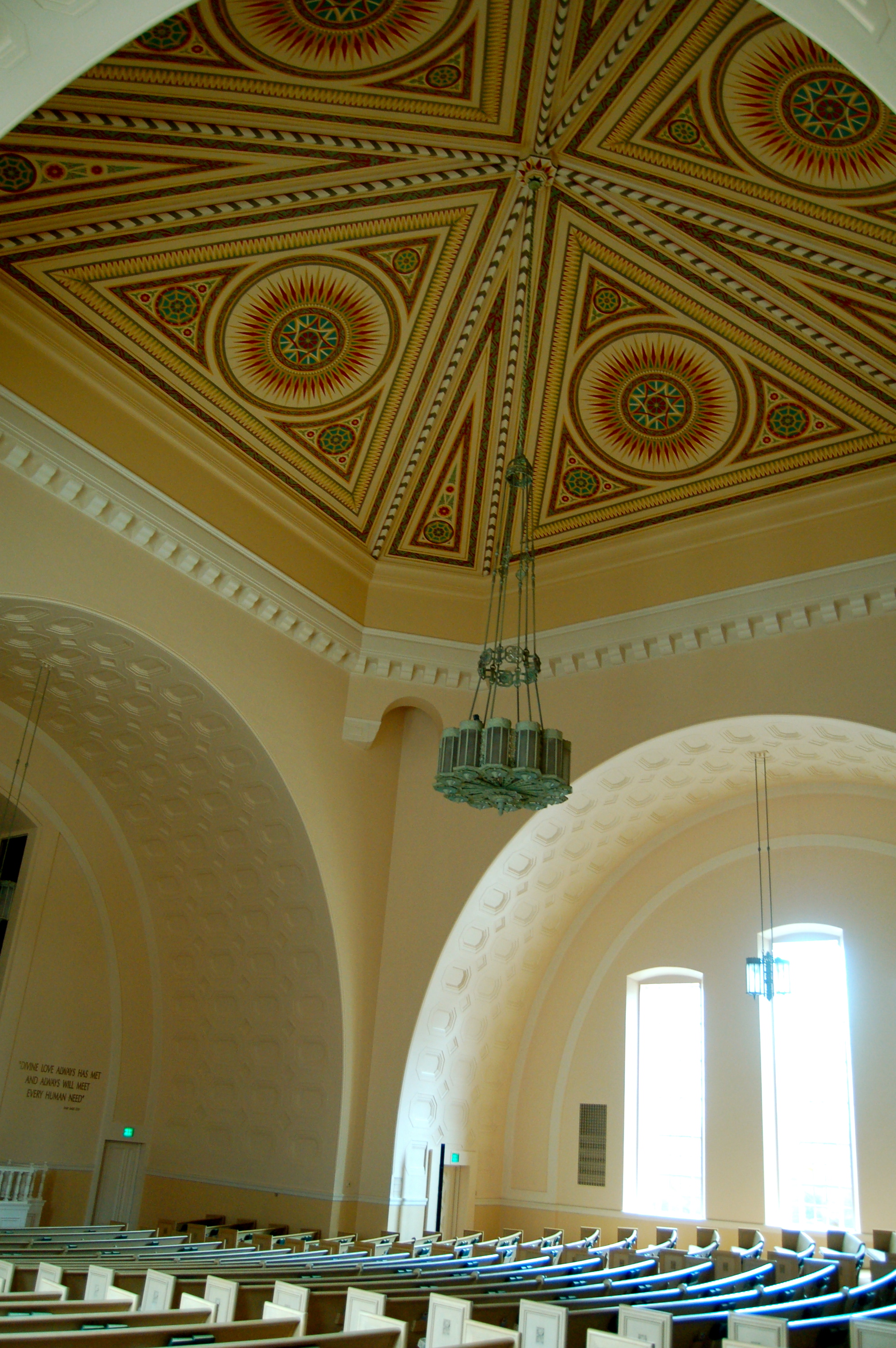
So this week’s review is going to be written in two parts. As you’ve no doubt noticed, this first post is personal. I can’t help it. Apparently I have more Christian Science baggage than I ever expected. But I plan to attend another service tonight, the one where members share their healing stories and I promise that write-up will be more clinical and hopefully answer more questions about the religion and how it’s practiced. All I can say about Sunday was that it affected me in a totally unexpected way. More so than any church service we’ve attended thus far.
It made me sad. WEEPY sad.
First, the church itself – Sixth Church – is an artifact. I would call it an Art Deco museum, but given its emptiness, not to mention the age of its average attendee, it’s really more accurately a mausoleum.
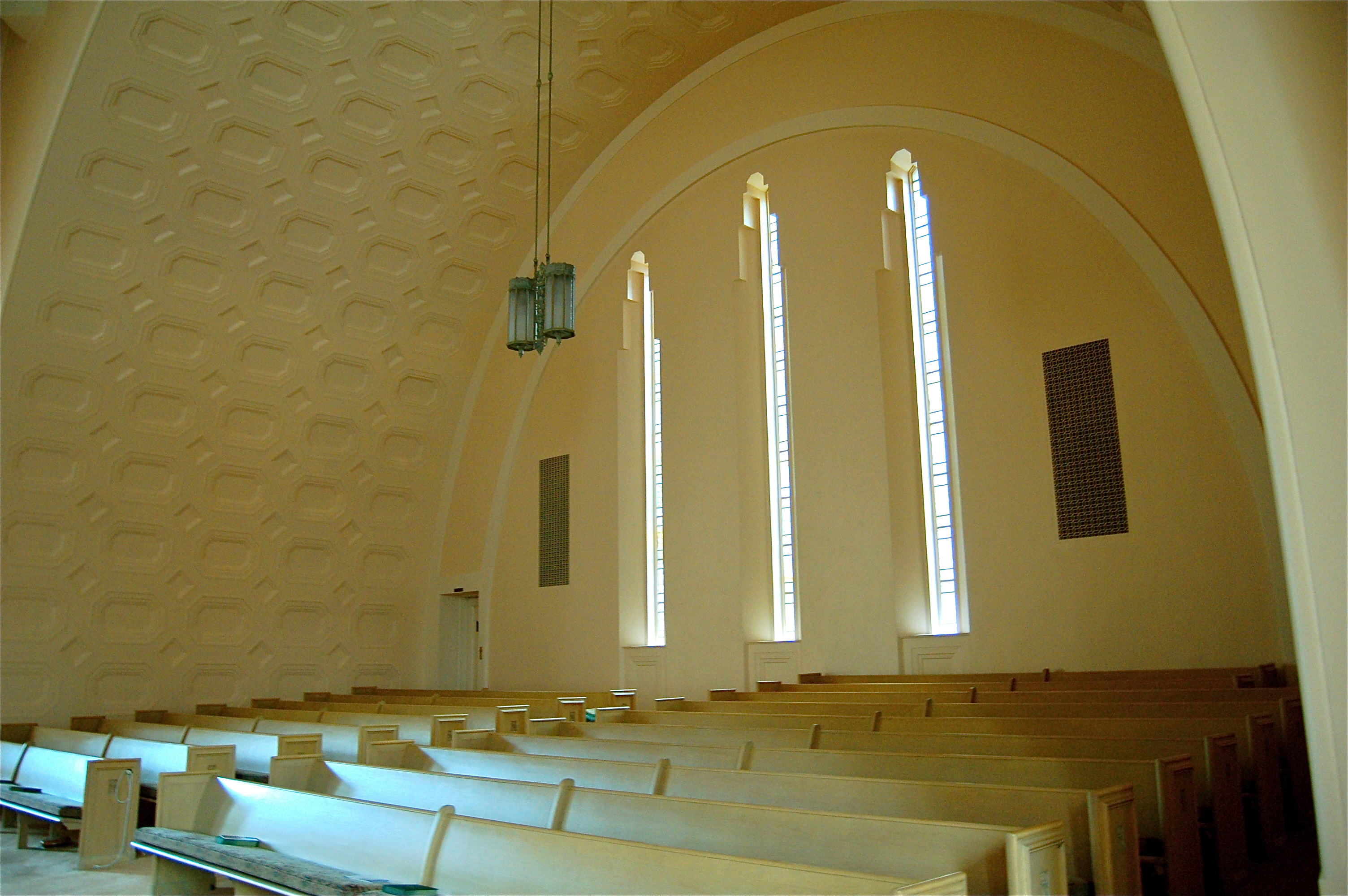
All that magnificence and beauty seemed a waste for the twelve heads I counted in the audience (and I’m generously including Joel, myself and even Genoa). How could I NOT think about my grandmother’s death when I was sitting in a dying church with a group of people who can only be seen as remains. Christian Science could never be a cult because correct me if I’m wrong, but don’t cults actually recruit new members or at least try their damnedest to keep the ones they already have? These Scientists are way too nice for that.
Listening to the readings on the “science of man’s eternal harmony” didn’t help much, either. It was so boring and disconnected I finally understood why my father couldn’t WAIT to leave the church. And I was actively TRYING to listen, to force myself to understand what Mary Baker Eddy spent 700 pages explaining in Science and Health – that by achieving an enlightened spiritual state with your mind, your body will be healed by proxy.
It’s actually not a bad theory if you think about it: mind over matter.
So this is my question for tonight’s service – what IS the power of positive thought? The Christian Scientists call it God, but what if it’s something ACTUALLY scientific, like brain chemistry? Maybe Mary Baker Eddy was on to something.

